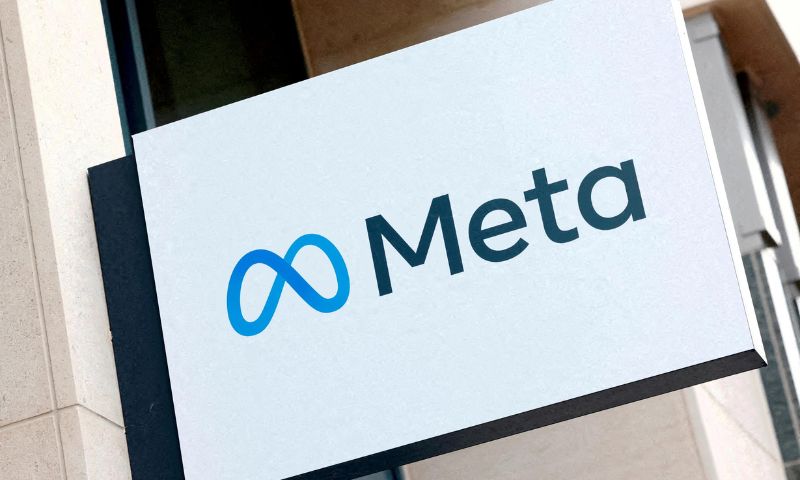
In a legal battle of significant magnitude, 33 U.S. states, including California and New York, have launched lawsuits against Meta Platforms, the parent company of social media giants Facebook and Instagram. The allegations against Meta revolve around claims that the company knowingly contributed to a youth mental health crisis by cultivating addictive and compulsive usage of its social media platforms, particularly among children and teenagers.
Misleading the Public and Encouraging Addiction
According to the complaint filed in the Oakland, California federal court, Meta has been accused of misleading the public about the potential dangers associated with its platforms. The states assert that the company deliberately induced young users, children, and teenagers, into addictive and compulsive social media usage, with the primary motivation being profit. The complaint states, “Meta has harnessed powerful and unprecedented technologies to entice, engage, and ultimately ensnare youth and teens.”
Targeting a Vulnerable Demographic
Historically, children have been an attractive demographic for businesses aiming to secure consumers while they are young and impressionable in the hope of cultivating brand loyalty. For Meta, attracting younger consumers is not only about user engagement but also about attracting advertisers who hope to capture the attention of these users as they grow into adulthood.
Adverse Outcomes Linked to Social Media Use
The states behind the lawsuits have cited research linking the use of Meta’s social media platforms with adverse outcomes, including depression, anxiety, insomnia, and interference with education and daily life. These concerns have raised alarms among various state attorneys general, pushing them to take legal action against the tech giant.
Meta Responds to the Lawsuit
Meta expressed disappointment regarding the legal actions taken against the company. In response, the company suggested that working constructively with industry players to establish clear, age-appropriate standards for apps used by teenagers would be a more productive approach. This response underscores the ongoing debate between tech companies and government authorities regarding the regulation of social media platforms and their impact on users, especially the younger generation.
Expanding Legal Actions
These lawsuits are part of a more significant trend of legal actions taken against social media companies in the interests of children and teenagers. Alongside Meta, TikTok, owned by ByteDance, and Google’s YouTube have also faced numerous lawsuits related to the alleged addictiveness of their platforms.
Meta’s Stance and Potential Penalties
Mark Zuckerberg, Meta’s chief executive, has defended his company’s approach to handling content that some have found harmful. He emphasized that Meta’s priorities include safety and well-being alongside profit. However, these lawsuits could result in civil penalties ranging from $1,000 to $50,000 for each violation of various state laws. Given the millions of young users on Instagram, these penalties could quickly accumulate.
A Whistleblower’s Revelation
A significant catalyst for the legal action against Meta was a whistleblower’s release of internal documents in 2021. These documents showed that Meta was aware of Instagram’s addictive nature and its impact on body image issues for some adolescent girls. The lawsuits argue that Meta actively aimed to keep young users engaged on its platforms despite the known risks, such as the need for approval through likes.
Accusations of Violations
The states accuse Meta of violating laws prohibiting the collection of data from children under the age of 13. Furthermore, the complaint alleges that Meta deceived users by denying that its social media platforms were harmful. It is claimed that Meta’s algorithms were designed to exploit the dopamine responses of young users, creating an addictive cycle of engagement. Dopamine is a neurotransmitter associated with feelings of pleasure and reward.
Tragic Consequences
The complaints also highlight a disturbing incident in the UK where a 14-year-old girl took her own life after being exposed to content about suicide and self-injury on Instagram. A coroner rejected Meta’s claim that such content was “safe” for children and found that the girl likely consumed harmful content that normalized the depression she had felt before her tragic death.
Expansion into Virtual Reality
The lawsuits also allege that Meta is seeking to expand its potentially harmful practices into virtual reality through platforms like Horizon Worlds, WhatsApp, and Messenger apps. This expansion further raises concerns about the potential impact on the mental and emotional well-being of young users.
A Response to Congressional Inaction
These lawsuits come in the wake of the U.S. Congress’s inability to pass new online protections for children despite years of discussions. The revelations brought forth by the whistleblower’s documents have intensified the spotlight on the role of social media platforms, including Meta, in causing mental health and physical health issues among young users.
Colorado Attorney General Philip Weiser emphasized that the evidence from the whistleblower revealed how Meta was aware of the harm caused by Facebook and Instagram. Social media platforms’ decisions play a significant role in driving mental and physical health issues, underscoring the urgency of addressing these concerns.
Don’t be a silent ninja! Let us know your thoughts in the comment section below.
